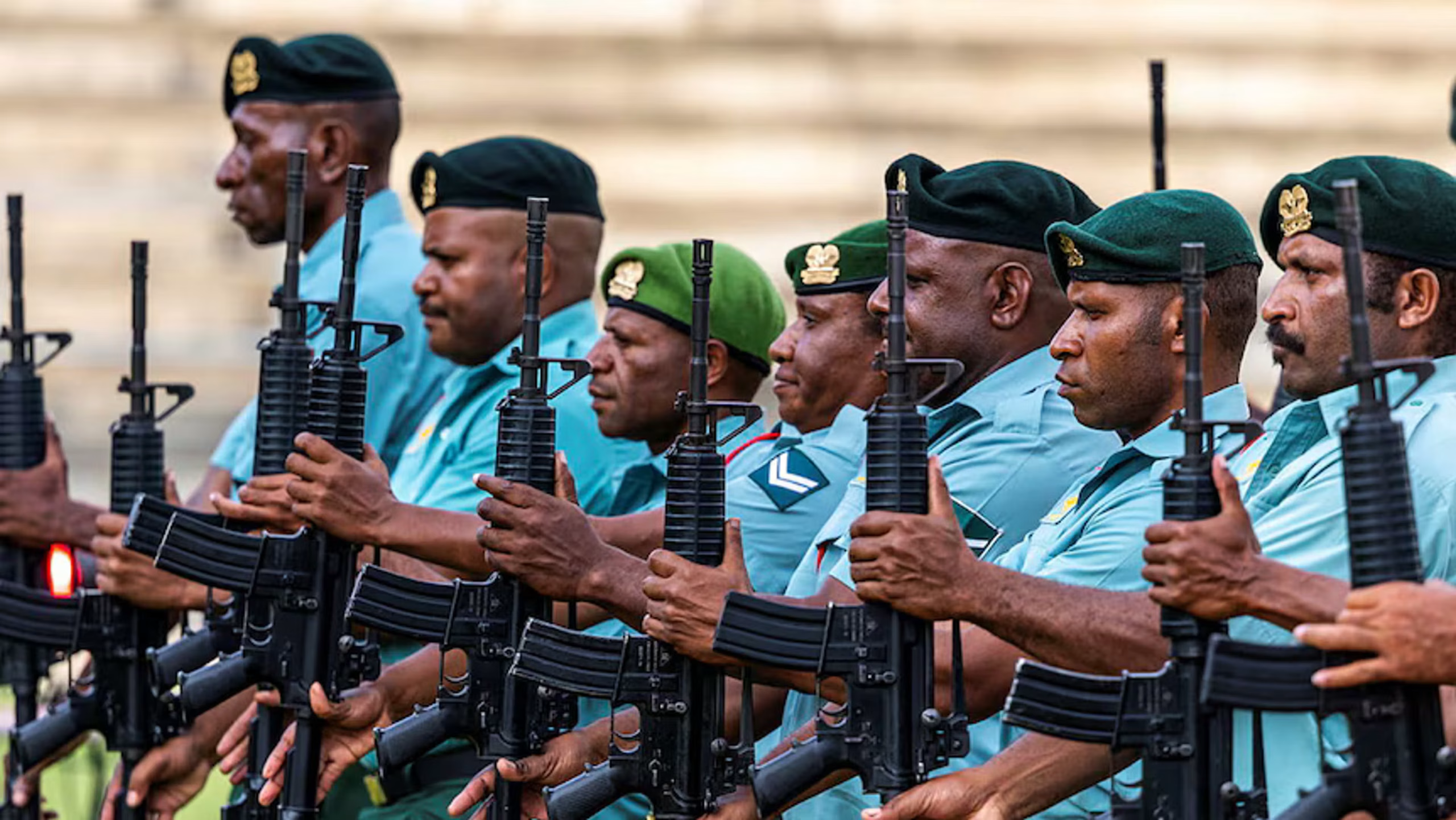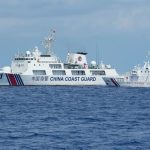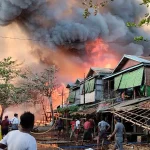Papua New Guinea has entered a new chapter in its national journey as it celebrated Independence Day with renewed pride and strategic foresight. This year’s commemoration carried a weight that went beyond cultural celebrations and national remembrance. It was marked by the announcement of plans to formalize a defence pact with Australia, a move that signals Port Moresby’s growing concern for regional security and its recognition of the evolving geopolitical landscape in the Indo-Pacific.
- The Historical Bond Between Papua New Guinea and Australia
- Why Papua New Guinea Seeks a Defence Pact Now
- Australia’s Strategic Interests in Papua New Guinea
- Details and Scope of the Proposed Defence Pact
- Regional Reactions and the Geopolitical Context
- Public Opinion and Domestic Considerations in Papua New Guinea
- The Role of the United States and Other Allies
- Challenges and Risks of the Defence Pact
- Looking Ahead: What the Pact Means for the Pacific
- FAQs
- Why is Papua New Guinea considering a defence pact with Australia?
- How does the pact benefit Australia?
- Will this defence pact affect Papua New Guinea’s relationship with China?
- What role will the pact play in disaster relief?
- How do Papua New Guinea’s citizens view the defence pact?
- Conclusion
As the Pacific Islands grapple with challenges from climate change to security threats, Papua New Guinea’s decision highlights both its aspirations for stability and the enduring partnership with its closest neighbor, Austral
The announcement has sparked conversations not only in Port Moresby and Canberra but across the wider Pacific and beyond. Analysts suggest that such a pact could reshape the balance of security cooperation in the Pacific Islands, strengthen regional resilience against external pressures, and reaffirm Australia’s commitment as a long-term security partner. To fully understand the significance of this development, one must examine Papua New Guinea’s history, the strategic context in which this decision is unfolding, and the potential consequences of a binding defence agreement between the two nations.
The Historical Bond Between Papua New Guinea and Australia
Papua New Guinea and Australia share one of the most unique bilateral relationships in the Pacific. For decades, the two countries have been tied by geography, shared history, and mutual reliance. Australia administered Papua New Guinea as a territory until it gained independence in 1975. Even after independence, Australia has remained Papua New Guinea’s largest development partner, aid donor, and one of its key security allies.
Australian soldiers fought and died on Papua New Guinea’s soil during World War II, particularly in the Kokoda Track Campaign, which is etched into the memory of both nations. This shared sacrifice laid the foundation for a bond that has endured for generations. Today, thousands of Papua New Guineans live and work in Australia, while Australian businesses continue to play an active role in PNG’s economic development.
This long-standing relationship has provided Australia with a moral and strategic imperative to support Papua New Guinea’s sovereignty and stability. The proposed defence pact represents the next step in this evolving partnership, transforming cooperation into a structured framework with legal commitments
Why Papua New Guinea Seeks a Defence Pact Now
Papua New Guinea’s decision to seek a defence pact with Australia is not accidental. It comes at a time of heightened regional competition, particularly as China increases its diplomatic and economic presence in the Pacific. Beijing’s pursuit of security agreements with island nations has raised concerns in Canberra, Washington, and other capitals, with fears that the Pacific could become an arena for strategic rivalry.
For Papua New Guinea, the stakes are high. The country has one of the largest populations in the Pacific, with over nine million citizens, and occupies a strategic position just north of Australia. Its economic and political stability is vital for the region. Yet, Papua New Guinea faces daunting internal challenges, including weak infrastructure, limited resources to manage its vast borders, and security threats ranging from transnational crime to illegal fishing and climate-driven instability.
By pursuing a formal defence agreement with Australia, Port Moresby is sending a clear message: it values a dependable partner who can bolster its sovereignty and provide the resources necessary to confront emerging threats.
Australia’s Strategic Interests in Papua New Guinea
For Australia, Papua New Guinea is not just a neighbor but a buffer that directly impacts its national security. Canberra views stability in Papua New Guinea as essential to the broader security of the Pacific and its northern approaches. The prospect of rival powers establishing a military or strategic foothold in PNG is a scenario Australia wants to avoid at all costs.
This proposed pact would not be Australia’s first major security initiative in the Pacific. In recent years, Canberra has signed security agreements with several Pacific Island nations, including Fiji and Vanuatu. However, a defence pact with Papua New Guinea carries far greater weight due to its size, population, and proximity.
Australian officials have consistently emphasized that their approach in the Pacific is rooted in partnership rather than dominance. By agreeing to a defence pact with Papua New Guinea, Australia reinforces its role as a trusted ally while ensuring that the Pacific remains a zone of peace rather than one of geopolitical confrontation.
Details and Scope of the Proposed Defence Pact
While the specifics of the defence pact are still under negotiation, reports suggest it will include commitments to joint training, intelligence sharing, maritime security cooperation, and capacity building for Papua New Guinea’s Defence Force. Australia has already supported PNG in upgrading its defence capabilities, and this pact could formalize mechanisms for rapid response to crises.
Another likely component is the joint protection of Papua New Guinea’s vast maritime domain. With an exclusive economic zone (EEZ) stretching over 2.4 million square kilometers, PNG struggles to police its waters against illegal fishing and other illicit activities. Australian naval assets and surveillance aircraft could play a crucial role in strengthening PNG’s maritime sovereignty.
Humanitarian and disaster relief operations are also expected to be a key feature of the pact. Given Papua New Guinea’s vulnerability to earthquakes, volcanic eruptions, and climate-induced disasters, Australian assistance could save lives and ensure rapid recovery.
Regional Reactions and the Geopolitical Context
The announcement of Papua New Guinea’s intent to sign a defence pact with Australia has drawn attention from across the Indo-Pacific. For Pacific Island nations, it raises important questions about the balance between sovereignty, security, and foreign influence. Some leaders have expressed cautious support, noting that greater cooperation with Australia could provide a counterweight to external pressures while reinforcing regional security.
However, there are also concerns. Critics argue that a defence pact could entangle Papua New Guinea in broader strategic rivalries, particularly between the United States and China. Beijing is likely to view the agreement as part of Canberra and Washington’s broader Indo-Pacific strategy to limit Chinese influence in the Pacific. This could complicate Papua New Guinea’s balancing act, as China is one of its largest trading partners and has invested heavily in infrastructure projects across the country.
Despite these concerns, Papua New Guinea’s leadership appears determined to move forward, framing the pact as a sovereign decision to protect its national interests rather than a choice between rival powers.
Public Opinion and Domestic Considerations in Papua New Guinea
Within Papua New Guinea, reactions to the proposed pact are mixed. Many citizens view Australia as a dependable partner and welcome the prospect of enhanced security cooperation. Others, however, worry about the implications for national sovereignty and the risk of overdependence on Canberra.
Civil society organizations have urged the government to ensure transparency in negotiations and to prioritize PNG’s long-term interests. Critics also highlight the need for investment in Papua New Guinea’s own security institutions rather than relying too heavily on external assistance.
Still, Independence Day celebrations showcased a sense of national pride, with many viewing the defence pact as a bold step toward securing Papua New Guinea’s future. For younger generations, the pact represents an opportunity to ensure peace and stability in a region where uncertainty looms large.
The Role of the United States and Other Allies
The United States has expressed strong support for greater security cooperation in the Pacific, and a defence pact between Papua New Guinea and Australia aligns with Washington’s strategic objectives. In May 2023, the U.S. signed its own Defence Cooperation Agreement with PNG, allowing greater American access to PNG facilities.
Other allies, including Japan and New Zealand, are likely to welcome the pact as part of a broader collective effort to maintain stability in the Pacific. Japan, in particular, has deepened its security engagement in the region, while New Zealand continues to prioritize peacebuilding and disaster relief. Together, these partnerships underscore the growing recognition of the Pacific as a critical theatre in global geopolitics.
Challenges and Risks of the Defence Pact
While the pact holds promise, it also carries risks. One key challenge will be ensuring that the agreement does not undermine Papua New Guinea’s sovereignty or foster resentment among its population. Managing public expectations will be crucial, as security partnerships can sometimes be perceived as neocolonial arrangements if not handled sensitively.
Another risk is economic. China remains a major investor and trading partner for PNG, and any perception that Port Moresby is aligning too closely with Australia and its allies could jeopardize critical economic ties. Striking a balance between security cooperation with Australia and economic engagement with China will be a delicate task for PNG’s leadership.
Finally, the pact’s success will depend on sustained political will and funding. Defence agreements are only as effective as the resources and commitments that underpin them. Both Australia and Papua New Guinea will need to demonstrate consistency and long-term vision to ensure the pact delivers tangible benefits.
Looking Ahead: What the Pact Means for the Pacific
The defence pact between Papua New Guinea and Australia, once finalized, will symbolize a new era in Pacific security cooperation. It will demonstrate that Pacific Island nations are not passive players in the global chessboard but active participants shaping their futures.
For Papua New Guinea, the pact offers a chance to enhance its security, strengthen its sovereignty, and project itself as a regional leader. For Australia, it represents both a strategic necessity and a reaffirmation of its role as the Pacific’s trusted partner.
More broadly, the pact will test whether Pacific nations can strike a balance between external partnerships and internal priorities, ensuring that security cooperation serves the interests of their people rather than outside powers.
FAQs
Why is Papua New Guinea considering a defence pact with Australia?
Papua New Guinea is pursuing a defence pact with Australia to strengthen its security, protect its maritime borders, and address emerging threats. The agreement reflects PNG’s desire for a dependable partner amid growing geopolitical competition in the Pacific.
How does the pact benefit Australia?
For Australia, the pact secures its northern approaches, reinforces its influence in the Pacific, and counters the growing presence of rival powers in the region. It also ensures regional stability, which is essential for Australia’s national security.
Will this defence pact affect Papua New Guinea’s relationship with China?
The pact could complicate PNG’s ties with China, which is a major economic partner. However, PNG’s leadership insists the agreement is about protecting its sovereignty and is not aimed at excluding other partners.
What role will the pact play in disaster relief?
Disaster relief and humanitarian assistance are expected to be central features of the pact. Australia has extensive experience in rapid response, which could prove vital for PNG, a country frequently affected by natural disasters.
How do Papua New Guinea’s citizens view the defence pact?
Public opinion is mixed. Some see the pact as a necessary step to ensure security and stability, while others worry about national sovereignty and overreliance on Australia. Transparency and consultation will be key to gaining public support.
Conclusion
Papua New Guinea’s Independence Day celebration this year was more than a commemoration of the past—it was a bold statement about the future. By moving toward a defence pact with Australia, PNG is signaling its determination to protect its sovereignty, secure its borders, and navigate the turbulent waters of global politics.
The agreement, once finalized, could reshape the Pacific’s security landscape, offering both promise and challenges. What remains clear is that Papua New Guinea, standing at the crossroads of history and geopolitics, is determined to carve a path that reflects both its national pride and its strategic foresight.







